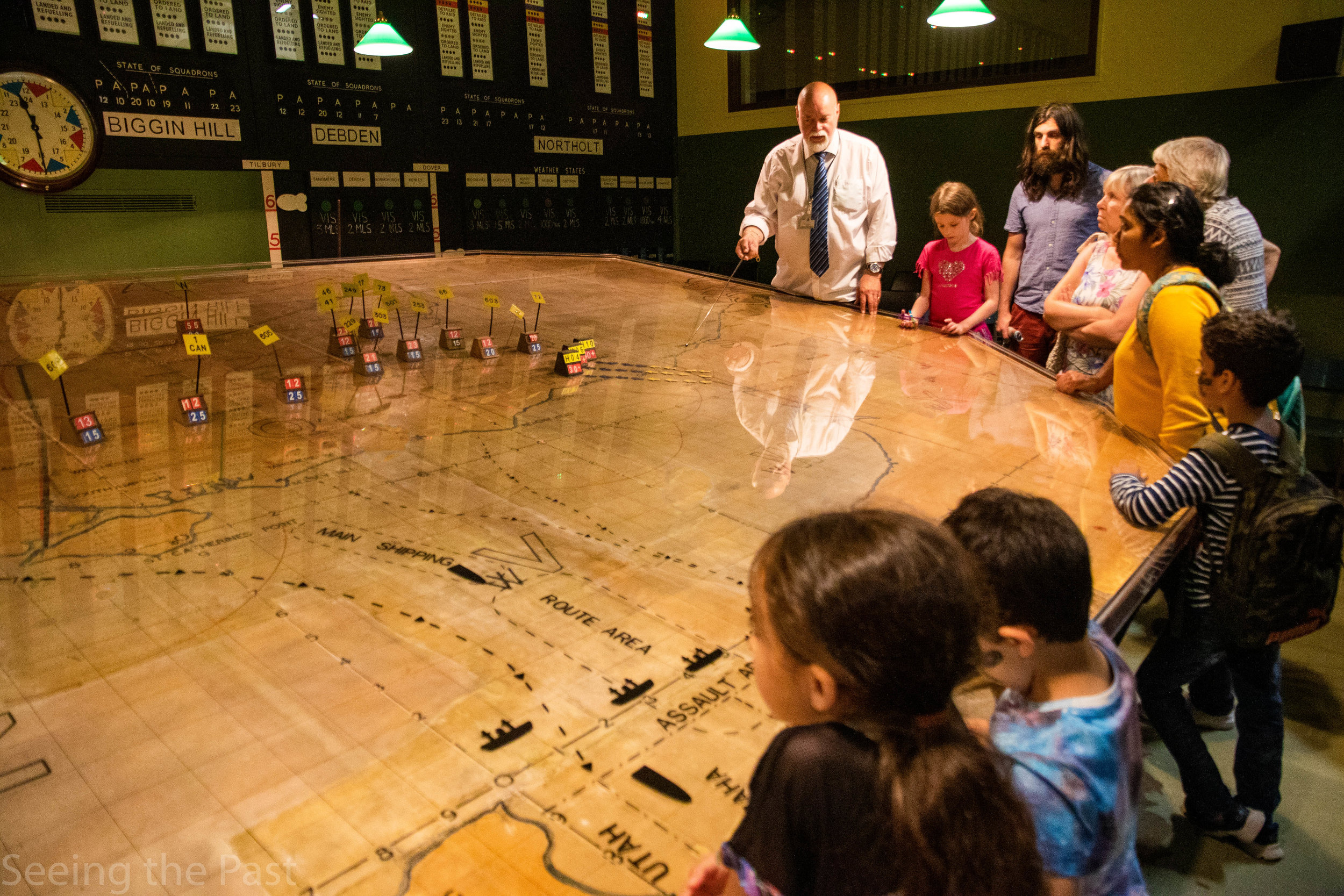The Battle of Britain Bunker
/The Battle of Britain Bunker
Visit the once top secret bunker at the heart of the Battle of Britain
Witness the room where key decisions were taken which decided the fate of the Britain in 1940. Twenty metres underground is situated the RAF Fighter Command’s No 11 Group Operations Room, a place where the exact position of German Heinkel and Dornier bombers, were plotted on a huge map. Using this key information, Spitfires and Hurricanes were directed towards the enemy to twist and turn in the sky above London and the Home Counties to prevent them from dropping their deadly cargo! Fast Messerschmitt fighter planes accompanied the bombers with the simple aim of shooting down any British plane that came to meet them.
How did the British know when the bombers were coming?
The RAF used a new invention known as Radar. This is brilliantly explained by a model in the accompanying visitor centre where a board displaying a plane can be moved towards a model of a radar tower and on the screen nearby the tracking signal is displayed.Once overland, Radar did not work and so it was down to the human eye in the form of the “Observer Corps” who reported on the whereabouts of the inbound enemy.
Can we see a Spitfire or a Hurricane?
Yes, all you need to do is look up to see two full scale replicas. To get a closer view you can go in the upstairs gallery and see various angles of both planes.
You can get pretty close to get a spectacular view of this iconic plane.
Can I go down to the Battle of Britain control room?
Yes. You are given a guided tour with time to have a close look at the map, the facilities and small small side rooms with objects, photos etc from the time.
Allegedly Winston Churchchill sat in this chair on “Battle of Britain Day”,September 15th 1940.
What interactive things can we do at the Battle of Britain Bunker?
Have a look at the photos below.
Are there any unusual exhibits at the Battle of Britain Bunker ?
How about a world War Two chess set featuring Hitler and Churchill?
Hitler and Goering versus Churchill and Dowding
How about these incendiary bombs that were designed to get lodged in people’s roofs and then burst into flames. Everyone’s roof was made up of a lot of wood and so, once one was was alight, all the other houses in the terrace would go up in flames.
Two incendiary bombs
The government was afraid that the germans might use gas in their attempt to defeat Britain. As a consequence gas masks were issued to everyone including children.In the middle you can see a child’s gas mask!
Where is the Battle of Britain Bunker?
BY TUBE: Nearest station Uxbridge (Metropolitan and Piccadilly), then one mile walk through Dowding Parkvia the High Street and St Andrews Road, signposted by blue and brown tourist signs. There is a cab rank at Uxbridge
.BY BUS: To St. Andrew’s Church on the A10 or U3 from Heathrow or the 427, U1, U4 or U7 then walk through Dowding Park. Bus U2 stops at the junction of Hercies Road and Honey Hill.
Check routes at www.tfl.gov.uk/plan-a-journey
BY CAR: Use satnav postcode UB10 0BE (different from postal address) or search maps for Battle of Britain Bunker
PHONE
01895 238154
If you have a question on the information covered in this Battle of Britain Bunker Blog feel free do get in touch.
Follow us on social media
Other article relevant to this blog



































Completed in 1952 and maintained by the Commonwealth War Graves Commission, this peaceful cemetery is the last resting place for 4144 named Commonwealth (the UK and former British Empire) soldiers and 338 unidentified ones. Added to this, are 500 graves of soldiers from other countries, the majority being German. It is a fascinating place to visit and observe all the different headstones and some of the stories they tell. The cemetery provides a solemn and peaceful atmosphere, with meticulously maintained rows of white headstones bearing the names of those who fell in the line of duty.